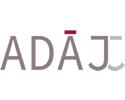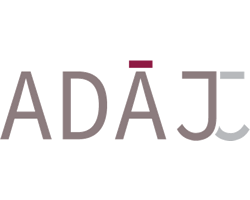
The ADAJ project calls for the implementation of multiple research hubs concurrently run. The researchers’ expertise and the ongoing partners’ participation are vital for their realization. Choosing whom to include in the team was based on three concerns.
1) One of ADAJ’s project purposes consists in developing a real empirical research network in the field of law. This objective explains why the team should consist of colleagues at the beginning of their career. Taking that particular characteristic into account is key when examining the co-researchers’ curriculum vitae. The availability and open mindedness that the project’s implementation requires and the need to create a durable and sustainable network of collaboration between the research community and the practice circles justify that choice.
2) The project requires the participation of researchers already having relationships with our partners. The team includes several researchers who do maintain regular relationships with the practice settings (Valois, Piché), the Courts (Jutras, Roberge, Campbell), administrative tribunals (Gesualdi-Fecteau) or prisons (Vacheret, Leclerc, Velloso). Others have links with the media circles (Sauvageau, Trudel, Brin) and the communication circles (Millerand, Prom Tep), the world of education (Éthier, Lefrançois, Demers), the community sector (Van Praagh, Bernheim, Rossi, Bernier) or the Aboriginal communities (Grammond, Guay, Belhadj-Ziane). Still others maintain special relationships with the Barreau du Québec (Lafond), the Chambre des notaires (C. Morin, Lefebvre, Lachance), the Société québécoise d'information juridique (Vermeys), the Department of Justice (Issalys, Noreau, Lamari, Samson, Cumyn), or private arbitration and mediation communities (Roberge). Finally some play a key coordinating role between the universities involved in the project, in particular Université de Montréal (Noreau), McGill University (Gélinas), Université Laval (Azzaria), Ottawa University (Grammond) and UQAM (Bernheim).
3) The majority of the team members have in the past worked collaboratively together. Moreover the director, Pierre Noreau, has collaborated with most of the team researchers at the Faculty of Law of UdeM (S. Morin, Lafond, Régis), at the Centre de recherche en droit public (Trudel, Vermeys, Vacheret, Leclerc), at the Regroupement Droit Changement et Gouvernance (Azzaria, Gélinas), and at the Observatoire du droit à la justice (Piché), or in current research teams or projects (Bernheim, Van Praagh, Issalys, Valois, Grammond, C. Guay, J-H. Guay, Dufour), in Government working groups (Jutras), and in trainings for the judiciary (Roberge, Sauvageau Bachand) or for restorative justice practitioners (Rossi). Some team researchers have completed a Ph.D. or a post-doctorate program under the supervision of P. Noreau and are currently university professors (Bernheim, C. Morin, Velloso).
Project director, research area directors and co-researchers
The project director’s role is to provide the coordination of the three research areas, the project good governance and the supervision of the methodological aspects specific to each research hub. He is accountable for the quality of the relationships between researchers and partners, is responsible for the facilitation of the project academic and public activities, and ensures complementarity and flow of knowledge between the hubs and the research areas. In addition he is ultimately responsible for the project synthesis and the dissemination of its findings (see Knowledge Mobilization).
The Scientific Committee, just like the team, is composed of researchers coming from various universities and disciplines: Pierre Noreau (UdeM), Emmanuelle Bernheim (UQAM), Jean-François Roberge (USherbrooke), Catherine Rossi (ULaval) and Catherine Piché (UdeM) (see Chart 4, above). The Committee will also include one representative of the Partners Council, one representative of the Students Caucus and one representative of the public (see section Project Governance).
Research Area 1, Awareness and knowledge of law is coordinated by Emmanuelle Bernheim. Professor Bernheim holds a Ph.D. in Law (UdeM) and a Ph.D in Social Sciences (ENS Cachan). She has developed multifaceted areas of expertise: study of the relations between the citizens and the justice system, judicial conduct matters, sociological theory of law. Her whole work is informed by legal pluralism. Her methodological approach relies mainly on qualitative methods: interviews and direct observation. The projects within Research area 1 are grouped within seven research hubs: hub 2, Class action, led by Catherine Piché (Law-UdeM); hub 4, Clarity of legislation coordinated by Pierre Issalys assisted by Michelle Cumyn and Mélanie Samson (Law-ULaval); hub 5, Legal education, facilitated by Marc-André Éthier (Didactics-UdeM) assisted by David Lefrançois and Stéphanie Demers (UQO). Hub 6, Justice and the media, builds on the co-operation between many professors: Georges Azzaria (Law-ULaval), Pierre Trudel (Lawt-UdeM), Colette Brin Communications-ULaval), Florian Sauvageau (Communications-ULaval) and Daniel Jutras (Law-McGill). Hub 7, Judicial statistics, is co-managed by Pierre Noreau and Moktar Lamari from ENAP. Florence Millerand (Communication-UQAM) and Sandrine Prom Tep (Management-UQAM) have responsibility for hub 3 on Accessible dockets while Emmanuelle Bernheim is responsible of hub 1 on Self-representation with the help of Dominique Bernier (Law-UQAM).
Research Area 2, Judicial institutions’ practices and accessibility is coordinated by professor Jean-François Roberge. He is heading the program Dispute prevention and resolution of the Sherbrooke Faculty of Law; he cumulates a triple formation in law (LLD, USherbrooke), in psychology ((MSc, UdeM) and in dispute prevention (LLM, USherbrooke). Research Area 2 includes seven different hubs: professor Daniel Jutras (Law-McGill) coordinates hub 8 on the Use of contemporary expert opinion in justice, assisted by Catherine Piché (Law-UdeM) and Fédéric Bachand (Law-McGill). Angela Campbell and Shauna Van Praagh (Law-McGill) will study, in hub 9, the management of Custody rights in youth protection, while Martine Valois (Lawt-UdeM) will take charge of hub 10 on the Public bodies’ use of private dispute resolution mechanisms. Research Area 2 also includes Nicolas Vermeys (Law-UdeM) and Fabien Gélinas (Law-McGill) who are researchers at the Cyberjustice Tribunal and will lead hub 12 on Paperless justice, assisted by Marie-Claude Sarrazin (Sarrazin+Plourde law firm). Christine Morin (Law-ULaval) is responsible of hub 13 on the Adult protection systems. Sébastien Grammond (Law-UOttawa) Christiane Guay and Kheira Belhadj-Ziane (Social work-UQO) have charge of hub 14 on Justice and youth in Aboriginal communities. Professor Roberge himself leads hub 11 on the use of Private dispute resolution processes in private practice of law.
Research Area 3 on trust and legitimacy is coordinated by Catherine Piché, professor at UdM Law Faculty. Holding a PhD in procedural law and in class action (McGill), trained in civil law (LLL, Ottawa), in Common law (LLB, Dal.) and in American law (LLM, NYU), she has developed an expertise in the field of complex litigation management, in comparative law and in private international law. She is also the head of a Class Actions Laboratory. Her work is informed by organizational sociology and economic analysis of law. In charge of Research Area 3, Piché coordinates the researchers and partners of six different hubs: hub 15 on Alternative measures for adults, led by Catherine Rossi (Crimino-ULaval); hub 16 on Justice in detention run by Marion Vacheret, Chloé Leclerc (Crimino-UdeM) and Joan Velloso (Law-U.Ottawa); hub 19 on Social expectations and awareness of law driven by Noreau, Sophie Morin (Law-UMontréal), Chloé Leclerc (Crimino-UdeM) and Joao Velloso (Law-U.Ottawa); hub 18 on Financial and human costs of justice, under the responsibility of Chloé Leclerc (Crimino-UdeM), Dalia Gesualdi-Fecteau (Law-UQAM) and Decio Coviello (HEC); hub 20 on Controversial practices in law, coordinated by Martine Valois and Pierre-Claude Lafond (Law-UdeM); and hub 17 on Rights and freedoms: on social construction of diversity, facilitated by Pierre Noreau (UdeM), Emmanuelle Bernheim (UQAM), Shauna Van Praagh (Law-McGill), J-H Guay (Pol.Sc.-USherbrooke) and Pacale Dufour (Pol. Sc.-UdeM).

